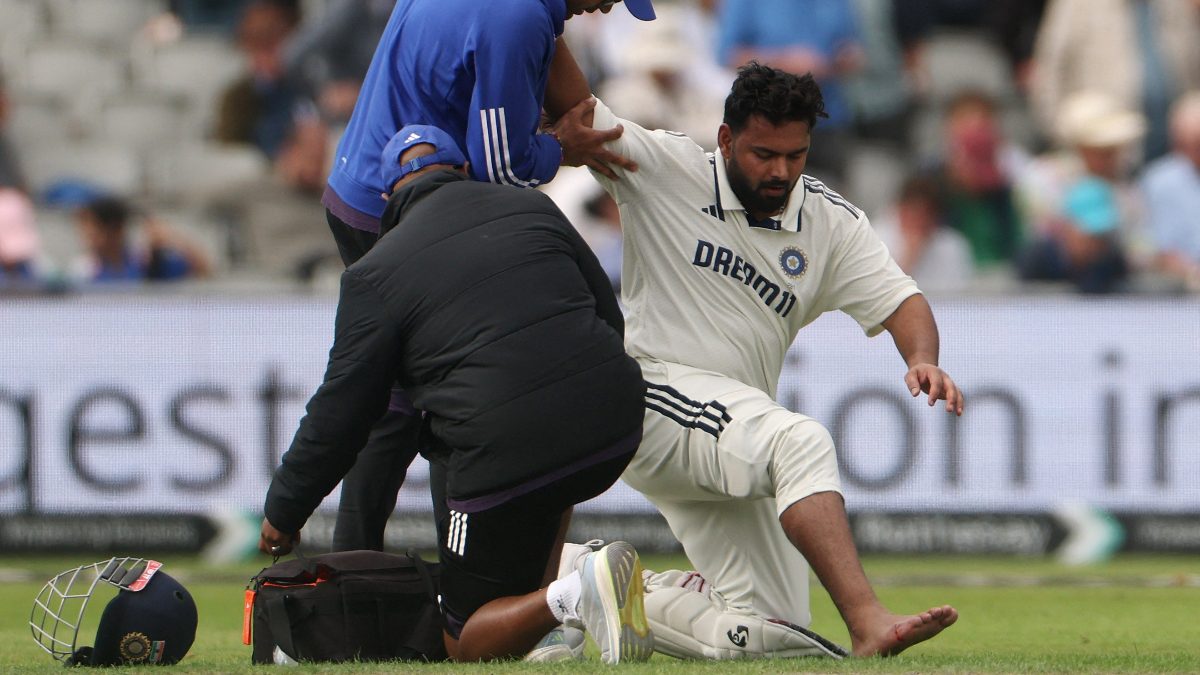

Rishabh Pant's unfortunate right foot injury during the ongoing fourth Test against England has reignited the debate surrounding the need for injury replacements in Test cricket. Pant was struck on the foot while attempting a reverse sweep off Chris Woakes and was visibly in pain, ultimately being taken off the field in an ambulance. The Board of Control for Cricket in India (BCCI) confirmed that Pant was taken for scans, leaving his participation in the remainder of the match uncertain.
The incident has prompted former England captain Michael Vaughan to advocate for a change in the rules to allow substitutes for clear injuries. Vaughan argued that it's unfair to have a team playing with ten players for an extended period due to an unfortunate injury. He suggested that if an independent doctor deems a player unable to continue in the first innings, a substitute should be permitted. Vaughan believes that allowing substitutes would maintain a competitive balance and enhance the entertainment value for fans.
However, not everyone agrees with Vaughan's proposal. Former England captain Alastair Cook raised concerns about the potential for abuse if substitutions were allowed for less severe injuries. Cook questioned the implications of allowing replacements for injuries that may not be significant, suggesting it could lead to tactical maneuvering rather than genuine injury replacements.
Currently, the International Cricket Council (ICC) playing conditions for Tests do not allow full substitutes. Teams can replace injured players in the field, but the substitute cannot bowl or act as captain. The substitute can only act as wicket-keeper with the umpires' consent. The exception to this rule is in the case of a concussion, where a like-for-like replacement is allowed to bat and bowl. A similar provision was made during the COVID-19 pandemic, but it has since been scrapped.
The Marylebone Cricket Club (MCC), the guardian of the Laws of Cricket, does allow for players to be replaced at the opposition captain's discretion. The MCC stated that it constantly monitors and reviews all Laws to ensure they remain fit for the modern game.
The concept of substitutes is not entirely new to cricket. "Supersubs" were introduced to one-day internationals in 2005 but were scrapped in 2006. The Indian Premier League (IPL) currently has an "impact player" rule, and Australia's Big Bash had a similar "X-Factor" player rule, but these were primarily for tactical reasons.
Pant's injury is the second he has sustained in this series. He had earlier bruised his finger during the third Test, preventing him from keeping wicket in England's second innings. If Pant is unable to continue in the current Test, Dhruv Jurel is likely to take over the wicket-keeping duties.
The severity of Pant's injury is still being assessed, but early reports suggest he could be out for six weeks with a fractured toe. England left-arm spinner Liam Dawson said that Pant's injury "didn't look great" and he wouldn't be surprised if the left-hander was not able to return to take further part in the match. Former Australia captain Ricky Ponting also expressed concern, noting the immediate swelling and the fact that Pant could hardly put his foot on the ground.
Pant's absence would be a significant blow to India, as he is a key player in their batting lineup. He is the second-leading run-scorer in the series and has been in excellent form. His injury puts added pressure on the remaining Indian batsmen as they aim to level the series.
The debate over injury replacements in Test cricket is likely to continue in light of Pant's unfortunate injury. While some argue that allowing substitutes would ensure a fairer contest, others are concerned about the potential for misuse. Ultimately, the decision rests with the ICC and the MCC, who must weigh the benefits of allowing replacements against the potential drawbacks.